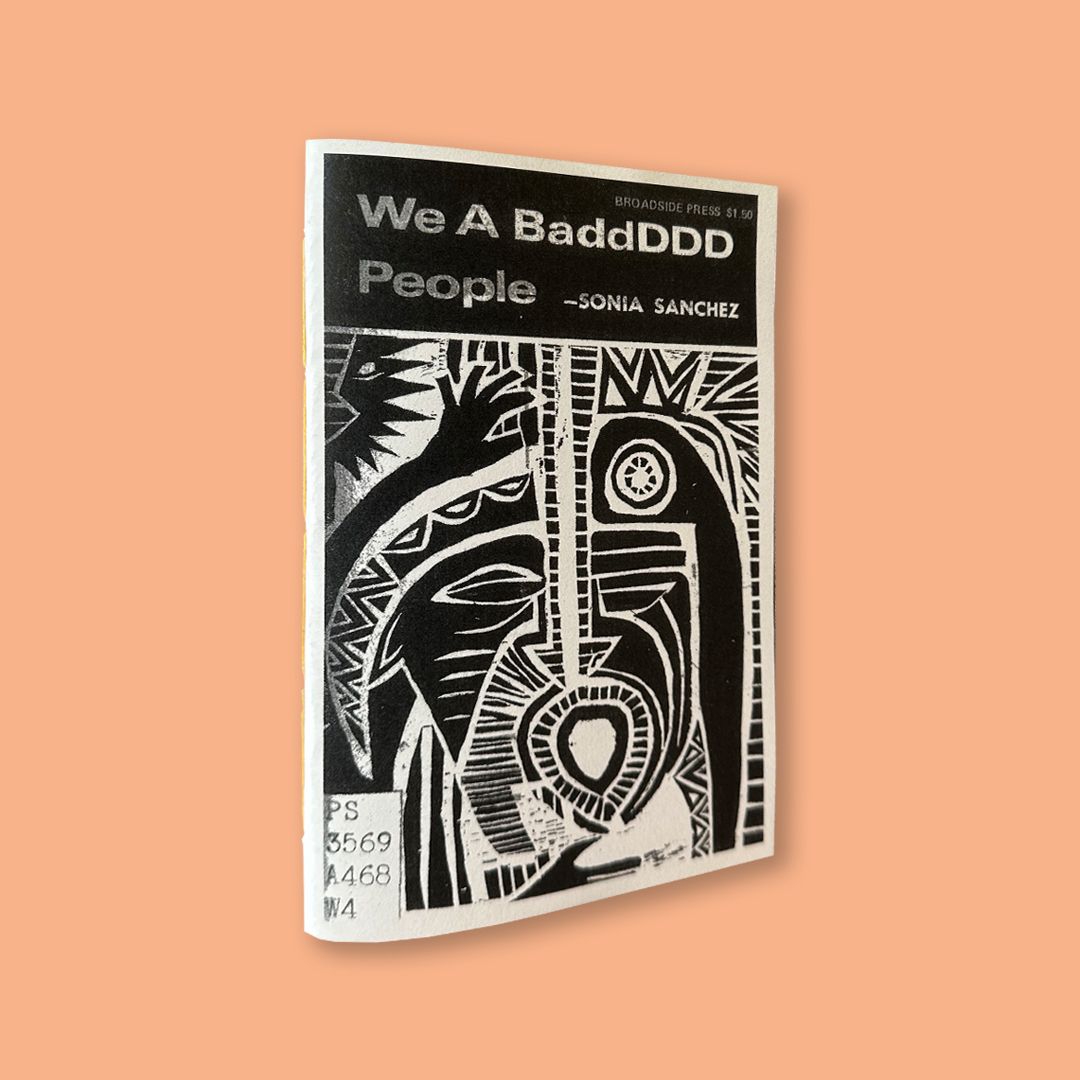“Three generations of white South African men were bound together at that table. Vermuelen was the first generation. He defined Africa, made it safe for Basson to defile. I was the last generation, the last to grow up in segregated neighborhoods. Between us was the silent photograph of Wouter Basson. Like a distant father, Basson was absent at the dining table.” – Henk Rossouw (Hole in the White ‘Hood). Also Mahmood Mamdani on Bantu Education at UCT, Gael Reagon on sisterhood, Binyavanga Wainaina on dis-covering Kenya, Gaston Zossou on African intellectuals and more…

Cover:
Strange Fruit by Lewis Allen
We A BaddDDD People by Sonia Sanchez (Broadside Press, 1970)
We A BaddDDD People by Sonia Sanchez (Broadside Press, 1970)
Sonia Sanchez's second book of poems (Broadside Press, 1970), similar to Homecoming (1969) in experimental form and revolutionary spirit, is dedicated to “blk/wooomen: the only queens of this universe” and exemplifies the poetics of the Black Arts movement and the principles of the black aesthetic. It depicts the experiences of common black folk in courtrooms, slum bars, and on the streets, with pimps and jivers, boogalooing and loving Malcolm X. It celebrates the majestic beauty of blackness and speaks of revolution in the language of the urban black vernacular. Rhythms deriving from the jazz and blues of John Coltrane and Billie Holiday create a poetry of performance in which the audience participates vigorously in meaning-making. Experimental in style, it is antilyrical free verse, using spacing, slash marks, and typography as guides to performance.
Characterizing Sanchez as a genuine revolutionary whose “blackness” is not for sale, Dudley Randall's introduction leads into the first of three sections, “Survival Poems,” which approach survival from political and personal perspectives. Some show how “wite” practices imperil black people's survival, seducing by heroin, marijuana, and wine or by exploding dreams. Others show how blacks undermine their own survival: the “makeshift manhood” underlying sexual neediness in “for/my/father,” the willful blindness of black “puritans,” and the hypocrisy of pseudorevolutionaries whose rhetoric masks self-indulgence. Personal poems recording moments of near-hysteria, depression, and longing lead to the revolutionary vision of “indianapolis/summer,” proposing communal love as a necessary prelude to real change.

